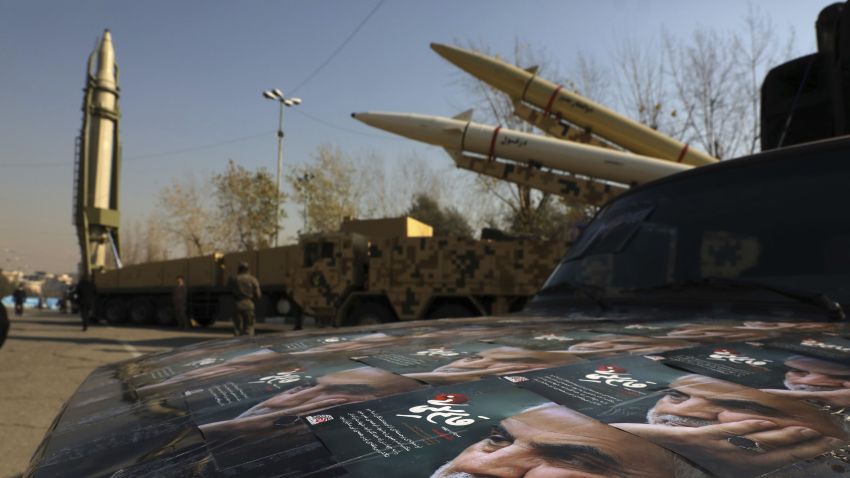Today at WPR, we’re covering Indian PM Narendra Modi’s solidarity with Israel and the emergence of Hindu nationalism in Nepal.
But first, here’s our take on today’s top story.
U.S.-Iran: The U.S. is imposing new sanctions targeting Iran’s missile and drone programs, a move designed to counter Tehran’s threat to Israel and Washington’s Gulf partners. Iran has provided missiles and drones to its proxies in the region, which include Hamas and Hezbollah, as well as to Russia for use in its war in Ukraine. (Financial Times)
Our Take: When the U.S. and Iran agreed to a nuclear deal—formally known as the Joint Comprehensive Plan of Action, or JCPOA—in 2015, one major concern among observers and policymakers was that the agreement did nothing to address Iran’s missile and drone programs, especially once U.N. Security Council sanctions on Iran expired, as they did yesterday.
Get the Daily Review sent straight to your inbox every weekday.
As a result, one of U.S. President Joe Biden’s primary goals upon taking office had been to reach a “more for more” deal with Iran, which would include not only reviving the JCPOA—which the U.S. withdrew from in 2018—but also placing limits on Tehran’s missile program and regional behavior.
Negotiations to revive the JCPOA, let alone expand it, had since bogged down into what most observers had believed was an irresolvable impasse. But then the U.S. and Iran reached an agreement in August that saw Tehran free five imprisoned Americans in exchange for the return of several jailed Iranians and access to about $6 billion of frozen Iranian funds to be used for humanitarian purchases. That agreement renewed optimism that, even if an official deal was not reached to formally limit Iran’s nuclear program, the two sides could agree to some kind of pragmatic workaround that would prevent both sides from crossing each other’s red lines.
After Hamas’ attack on Israel, however, the U.S. penalized Iran, a Hamas ally, by suspending Tehran’s access to the $6 billion of unfrozen funds from the prisoner exchange deal. And while Washington likely would have imposed this new round of sanctions on Iran’s missile and drone programs even if Hamas had not launched that attack, the decision takes on added significance coming against the backdrop of the ongoing war.
To be sure, neither the JCPOA, when it was still in effect, nor U.N. sanctions actually stopped Iran from making advances in these programs. As Shahryar Pasandideh wrote for WPR on Tuesday, while Iran’s long-range ballistic missiles have gotten most of the attention, Tehran has increasingly developed and deployed short-range strike systems that already have huge implications regionally.
But Hamas’ attack on Israel and the renewed war in Gaza probably killed off whatever chances were left of reaching any kind of nuclear deal between the U.S. and Iran. And these new sanctions have put the final nail in the coffin, even as the war underscores the regional implications of the failure to revive the JCPOA.

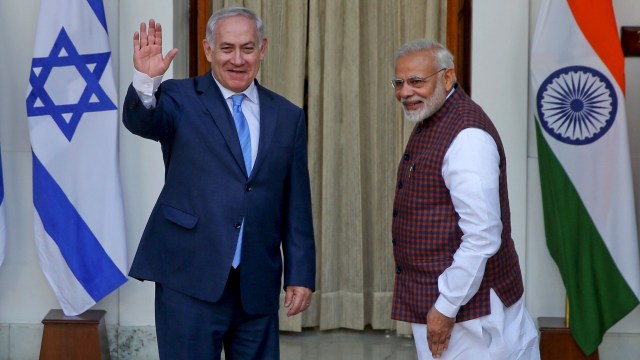
Modi and India Are Standing With Israel
Just a few hours after the Palestinian militant Islamist group Hamas launched its attacks against Israeli civilians on Oct. 7, Indian PM Narendra Modi posted a message on social media declaring himself “[d]eeply shocked by the news of terrorist attacks in Israel.” Speaking for India, Modi added, “We stand in solidarity with Israel at this difficult hour.”
The statement was almost startling for its timing and forthrightness. There was no ambivalence in Modi’s words, no hedging, no waiting period for a committee to craft a diplomatic communiqué.
The statement also stands in stark contrast to Modi’s noncommittal response to Russia’s invasion of Ukraine. But as columnist Frida Ghitis writes, India has compelling reasons to side so decisively with Israel in a conflict with Palestinian militants.
Hindu Nationalism Is Gaining Traction in Nepal—With Help From India
In Nepal, the emergence of Hindu nationalism—some of it exported from India—coupled with attacks on the country’s secularist credentials as enshrined in its Constitution hint at an organized effort to increase the salience of religion in domestic politics.
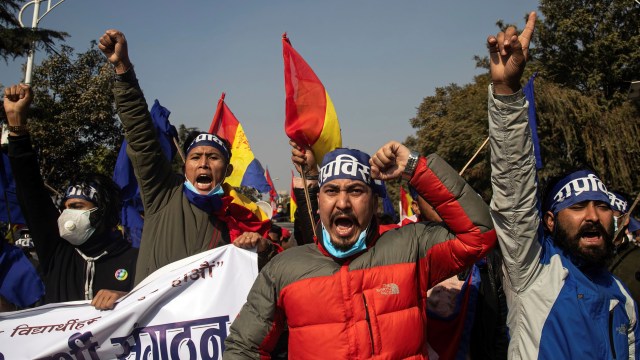
As Sushav Niraula writes, the stakes for understanding this trend are urgent, as the health of Nepal’s young democracy would suffer should Hindu nationalism make significant inroads there.

We want to hear your take on the issues we cover. We’ll select one person from those who answer the question below to receive a free one-month extension of their WPR subscription.
This week’s question: U.S. President Joe Biden has continued to express full solidarity with Israel, even appearing to side with the Israeli Defense Forces’ account of Tuesday’s hospital explosion, while also limiting public calls for Israel to show restraint in Gaza. In the aftermath of the explosion, should Biden have visited Israel?

Nicaragua has released 12 Catholic priests who had been jailed on a variety of charges and sent them to Rome in a deal with the Vatican.
Nicaraguan President Daniel Ortega’s crackdown on the Catholic Church, one of the last remaining threats to his increasingly dictatorial power in the deeply Catholic country, reached a boiling point earlier this year, leading Pope Francis to personally speak out against Ortega’s rule, as columnist Frida Ghitis wrote at the time.
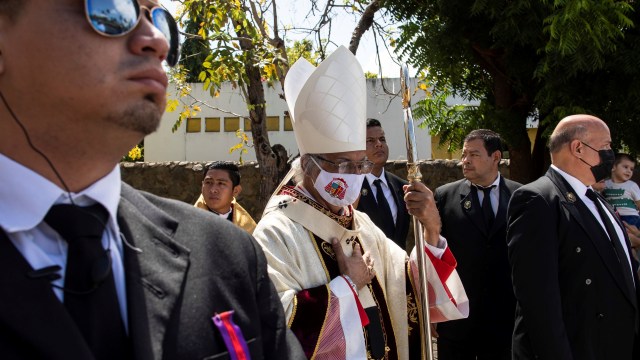
In Nicaragua, Ortega’s Crackdown on the Catholic Church Takes a New Turn
April 13, 2023 | Tensions between the dictatorial Daniel Ortega and the Catholic Church reached a boiling point over Easter weekend in Nicaragua. Read more.
In Spain, the clock is ticking for acting PM Pedro Sanchez to form a government, following inconclusive elections in July that left both major coalitions without an absolute majority. With the Nov. 27 deadline looming, Sanchez and his leftist coalition have advanced negotiations with two Catalan separatist parties that could offer him a path to the premiership.
But in return for their support, those two parties have demanded that Sanchez issue a sweeping amnesty for Catalan separatists involved in the illegal October 2017 independence referendum. As Alana Moceri wrote earlier this month, the move would be highly controversial, even within Sanchez’s Socialist party.
Catalonia Separatists Have Spain’s Sanchez Over a Barrel
Oct. 4, 2023 | Pedro Sanchez needs the support of Catalonia’s separatist parties to avoid new elections in Spain, but their conditions could be costly. Read more.
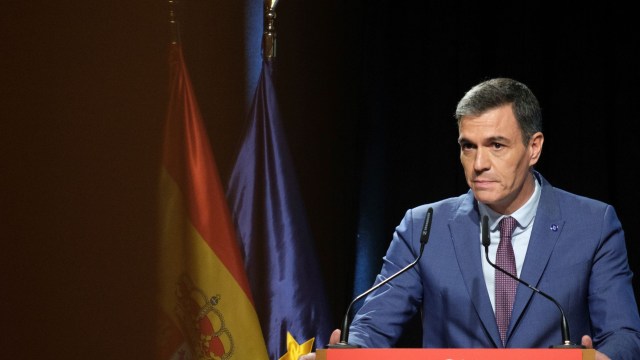
More From WPR
- Alexander Clarkson on nationalism in Iran and Saudi Arabia.
- Benjamin Gedan and Andrew Sady-Kennedy on lithium in Argentina.
- Shahryar Pasandideh on Iran’s missile and drone systems.
- Jonathan Fenton-Harvey on Syria’s reconstruction.

